
How AI Will Transform the Way We Work and Build Careers
AI will transform careers by automating tasks, creating new job opportunities, and enhancing skills development. It will improve decision-making, enable efficient remote work, and promote workplace diversity, while raising important ethical concerns. Professionals must adapt by focusing on uniquely human skills to thrive in the evolving job market.
✨ Raghav Jain
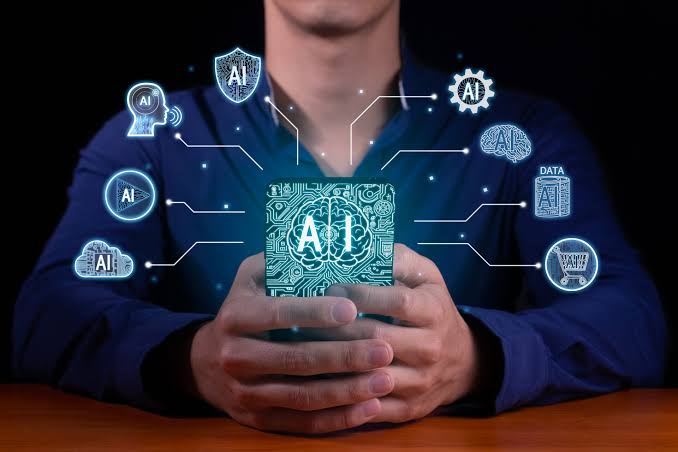
Introduction
Artificial Intelligence (AI) is no longer just a futuristic concept—it is rapidly reshaping the way we work and build our careers. From automating routine tasks to enabling smarter decision-making, AI is revolutionizing industries across the globe. While many focus on AI as a tool for efficiency, its true power lies in how it is transforming career landscapes, job roles, and skill requirements. Understanding AI’s impact can help individuals adapt, thrive, and harness its potential for personal and professional growth.
In this article, we will explore how AI is changing work environments, what it means for career development, the science behind it, and practical ways to prepare for the AI-driven future. Artificial Intelligence (AI) is not merely a technological advancement; it is a profound societal force poised to fundamentally transform the very fabric of work and the trajectory of individual careers, creating an unprecedented wave of disruption, augmentation, and innovation that will redefine professional landscapes globally. This isn't just about automation replacing repetitive tasks; it's about AI becoming an intelligent co-pilot, a creative assistant, and a strategic advisor, altering how jobs are performed, what skills are valued, and how career paths are conceived and navigated. The impact will be multifaceted: while some roles will be displaced, many more will be augmented, and entirely new professions will emerge, demanding a radical shift in human capabilities and a commitment to lifelong learning.
At its core, AI's transformation of work revolves around automation and augmentation. Routine, repetitive, and data-intensive tasks across virtually every sector – from administrative duties and data entry to basic customer service, financial analysis, legal research, and even some aspects of coding and content creation – are being automated by AI-powered algorithms and robotic process automation (RPA). This displacement, while concerning for workers in directly affected roles, frees up human capital from mundane chores, allowing them to focus on higher-value, more complex, and uniquely human endeavors. This leads to job augmentation, where AI tools act as intelligent assistants, enhancing human capabilities rather than replacing them entirely. For instance, doctors will leverage AI for faster, more accurate diagnoses and personalized treatment plans, rather than being replaced by AI. Lawyers will use AI to sift through vast legal precedents in seconds, focusing their expertise on strategic argumentation and nuanced client interactions. Marketing professionals will employ AI to analyze consumer behavior and generate personalized campaigns, dedicating their time to creative strategy and brand storytelling. Even highly technical roles like software development will see AI co-pilots assist with code generation, debugging, and testing, enabling developers to build more complex systems faster and focus on architectural design and innovative problem-solving. This human-AI collaboration will become the norm, demanding a new synergy between cognitive skills and technological fluency.
The shifting nature of tasks will inevitably lead to a re-evaluation of required skills. While technical proficiency in AI itself (machine learning, deep learning, data science, prompt engineering, AI ethics) will be in high demand, the most critical skills for the AI era will increasingly be those that are inherently human and difficult for machines to replicate. Critical thinking and complex problem-solving will be paramount, as AI will handle routine analysis, leaving humans to address ambiguous, novel, or unstructured challenges. Creativity and innovation will be highly valued, as AI can generate permutations but often lacks the true originality and conceptual leaps that drive breakthrough ideas. Emotional intelligence, empathy, and interpersonal communication will become even more crucial in roles involving direct human interaction, leadership, negotiation, and client relations, as AI lacks the nuanced understanding of human emotions. Adaptability and resilience will be non-negotiable, given the rapid pace of technological change and the continuous need for upskilling and reskilling. Digital literacy will extend beyond basic computer use to understanding how AI works, its limitations, and how to effectively integrate AI tools into workflows. The ability to collaborate with AI – to frame problems for AI, interpret its outputs, and refine its performance – will be a fundamental new skill. This also includes an understanding of AI ethics, ensuring that AI systems are developed and used responsibly, without bias or harmful consequences.
Career paths will become less linear and more dynamic. The traditional ladder model will give way to a more fluid, lattice-like progression, where individuals frequently pivot, acquire new skills, and potentially move across industries. Lifelong learning will transition from a desirable trait to an absolute necessity. Educational institutions, corporate training programs, and individual initiatives will focus heavily on upskilling and reskilling to bridge the evolving skill gaps. Micro-credentials, online courses, and personalized learning platforms (often AI-driven themselves) will offer flexible pathways to acquire new competencies quickly. Talent acquisition will also be transformed by AI, with AI-powered tools assisting in resume screening, candidate matching, and even preliminary interviews, leading to more objective and efficient hiring processes. Conversely, job seekers will use AI tools to optimize their resumes and tailor applications, creating a continuous feedback loop between AI in hiring and AI in job seeking.
AI will also foster the creation of entirely new job roles and industries. We are already seeing the emergence of roles like AI Ethicists, Prompt Engineers, AI Trainers, AI Integration Specialists, and AI UX Designers. As AI systems become more sophisticated, there will be demand for professionals who can manage, maintain, and troubleshoot these complex systems, as well as those who can envision and apply AI to solve problems that were previously intractable. New service industries built around AI will flourish, creating opportunities for entrepreneurs and innovators. The legal, ethical, and regulatory frameworks surrounding AI will also expand, creating jobs in policy, compliance, and governance.
However, this transformation is not without its challenges and ethical considerations. Job displacement, particularly for those in routine, automatable roles, necessitates robust social safety nets, retraining programs, and a societal commitment to equitable transitions. The potential for algorithmic bias in AI systems, if not carefully addressed, could perpetuate or even exacerbate existing societal inequalities in hiring, lending, and other critical areas. Data privacy and security become even more paramount as AI systems process vast amounts of sensitive information. The very definition of human work and creativity might be re-examined, leading to philosophical debates about purpose and value in an AI-augmented world. Regulatory bodies will need to rapidly adapt to govern the development and deployment of AI responsibly.
In conclusion, AI's influence on the future of work and careers will be pervasive and revolutionary, moving beyond simple automation to fundamentally redefine human-machine collaboration, reshape skill demands, and create entirely new professional possibilities. While concerns about job displacement are valid, the more significant narrative is one of augmentation, efficiency, and the liberation of human potential from mundane tasks. Success in the AI era will hinge on an individual's ability to be agile, continuously learn, embrace human-centric skills like creativity and emotional intelligence, and master the art of collaborating with intelligent machines. Organizations, educators, and governments must proactively invest in reskilling initiatives, foster ethical AI development, and build adaptable frameworks to ensure this technological revolution leads to a more productive, fulfilling, and equitable future of work for all.
Understanding AI’s Role in the Workforce
Artificial Intelligence refers to machines and software that simulate human intelligence processes like learning, reasoning, and problem-solving. AI systems analyze vast data, automate repetitive tasks, and generate insights faster than humans. This transformation affects many areas of work:
- Automation of routine tasks
- Enhancement of creativity and innovation
- Data-driven decision making
- Personalized learning and development
Good career health in the AI era means:
- Being adaptable and tech-savvy
- Continuous upskilling and reskilling
- Collaborating effectively with AI tools
- Leveraging AI for creativity and strategic thinking
Ignoring AI’s influence can lead to skill obsolescence and missed opportunities.
How AI is Changing the Way We Work
AI impacts work through various direct and indirect ways:
1. Automation of Repetitive Tasks
AI handles mundane, rule-based jobs like data entry, scheduling, and inventory management. This frees humans to focus on higher-value tasks requiring creativity and emotional intelligence.
2. Enhanced Productivity and Efficiency
With AI-powered tools, employees can analyze data quickly, forecast trends, and optimize workflows, boosting output and reducing errors.
3. Remote Work and Collaboration
AI facilitates virtual collaboration through intelligent communication tools, project management assistants, and language translation, making remote work seamless.
4. Personalized Work Experiences
AI adapts work environments to individual preferences by recommending learning paths, optimizing schedules, and providing real-time feedback.
5. New Job Roles and Opportunities
Emerging roles like AI specialists, data analysts, and automation managers are in demand, along with hybrid roles that combine domain expertise with AI skills.
How AI is Transforming Career Building
The way we plan, grow, and sustain careers is evolving with AI integration.
1. Continuous Learning and Upskilling
AI-powered platforms offer personalized courses and skill assessments, making lifelong learning accessible and tailored.
2. Data-Driven Career Decisions
AI analyzes job market trends, salary data, and skill gaps to help individuals make informed career moves.
3. Enhanced Recruitment Processes
AI improves hiring by screening resumes, assessing candidate fit via algorithms, and reducing bias.
4. Flexible and Gig Economy Growth
AI supports freelance work through platforms that match skills with projects, enabling career flexibility and entrepreneurship.
5. Collaboration Between Humans and AI
Successful careers will require the ability to work alongside AI tools—interpreting AI outputs and applying human judgment.
AI + Human Skills: A Powerful Combination
AI’s true potential is unlocked when paired with uniquely human skills.
1. Creativity and Innovation
While AI can generate data and options, humans bring originality and emotional nuance to problem-solving.
2. Critical Thinking and Ethics
Humans must interpret AI recommendations, question biases, and ensure ethical use.
3. Emotional Intelligence and Communication
Empathy and interpersonal skills remain vital in leadership, team-building, and client relations.
4. Adaptability and Learning Agility
AI-driven change requires flexibility and willingness to learn new technologies and methods.
Practical Tips to Prepare for an AI-Driven Career
Daily Habits
- Dedicate 20-30 minutes to learning AI basics or related skills online
- Use AI tools (like chatbots or automation software) to improve productivity
- Practice critical thinking by evaluating AI-generated insights
Weekly Actions
- Enroll in courses on data literacy, machine learning, or coding
- Network with professionals working in AI and tech fields
- Experiment with AI-powered creative tools or project management apps
Long-Term Strategies
- Develop hybrid skills combining your domain expertise with AI knowledge
- Stay updated on AI trends in your industry
- Engage in ethical discussions about AI’s role in society and work
Common Myths About AI and Work: Busted!
“AI will take all our jobs.”
→ False. While some tasks will be automated, AI creates new jobs and opportunities that require human skills.
“Only tech experts need to learn about AI.”
→ Wrong. AI affects all fields, from healthcare to marketing. Basic understanding benefits everyone.
“AI can replace human creativity.”
→ No. AI supports but does not replicate human imagination and emotional intelligence.
“Learning AI skills is too difficult.”
→ Not true. Many beginner-friendly resources and courses make AI accessible to all.
Sample AI-Ready Career Development Plan
Morning Routine
- Spend 15 mins reading AI news or articles
- Practice a coding or data analysis challenge
Workday Habits
- Use AI tools for task automation or data visualization
- Collaborate with AI assistants to optimize work
Evening Learning
- Complete an online module on AI ethics or applications
- Reflect on how AI can improve your current role
Weekly Focus
- Attend webinars or virtual meetups on AI and careers
- Update your resume with new AI-related skills
Conclusion
AI is transforming not just how we work but how we envision and build our careers. It offers exciting opportunities to enhance productivity, creativity, and job satisfaction, but also demands new skills and adaptability. By embracing AI as a collaborative partner and investing in continuous learning, individuals can future-proof their careers and unlock new potential.
Whether you are just starting your career or looking to grow in your field, paying attention to AI’s impact will keep you competitive and ready for the evolving workplace.
Start today. Your AI-empowered career awaits tomorrow.
Q1: What is Artificial Intelligence (AI) in the context of work?
Ans: AI refers to machines and software that can perform tasks usually requiring human intelligence, such as problem-solving, learning, and decision-making, transforming workplace processes.
Q2: How will AI change job roles in the future?
Ans: AI will automate routine and repetitive tasks, allowing workers to focus on creative, strategic, and interpersonal roles that require human insight.
Q3: Will AI lead to job losses or new job creation?
Ans: While AI may replace some jobs, it will also create new roles in AI management, data analysis, and technology development, shifting workforce demands.
Q4: How can professionals adapt their skills to thrive alongside AI?
Ans: Emphasizing skills like critical thinking, creativity, emotional intelligence, and continuous learning will help professionals complement AI technology.
Q5: What industries will be most affected by AI?
Ans: Sectors such as healthcare, finance, manufacturing, customer service, and marketing will see significant AI-driven transformations.
Q6: How will AI impact remote work and collaboration?
Ans: AI-powered tools will enhance virtual communication, automate scheduling, and facilitate project management, making remote work more efficient.
Q7: What role will AI play in career development and training?
Ans: AI will personalize learning experiences, identify skill gaps, and recommend tailored career paths and training programs.
Q8: Can AI improve decision-making at work?
Ans: Yes, AI can analyze vast amounts of data quickly to provide insights, helping professionals make more informed decisions.
Q9: How will AI affect workplace diversity and inclusion?
Ans: AI can help reduce unconscious bias in hiring and promotions, promoting a fairer and more inclusive work environment when designed responsibly.
Q10: What ethical considerations arise from AI in the workplace?
Ans: Issues include data privacy, algorithmic bias, job displacement, and the need for transparent AI governance to ensure fair treatment of employees.
Similar Articles
Find more relatable content in similar Articles
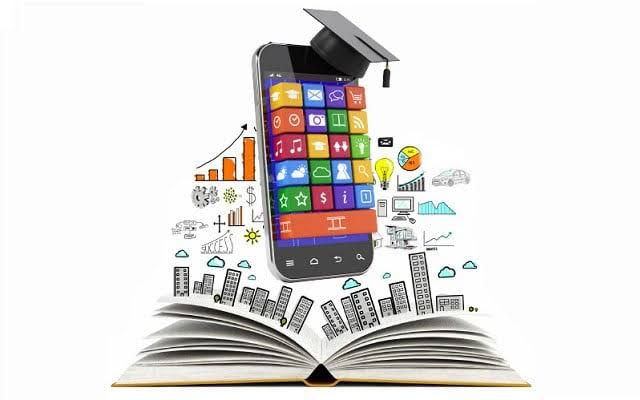
Smart Study to Smart Career: ..
Smart study and career apps a.. Read More
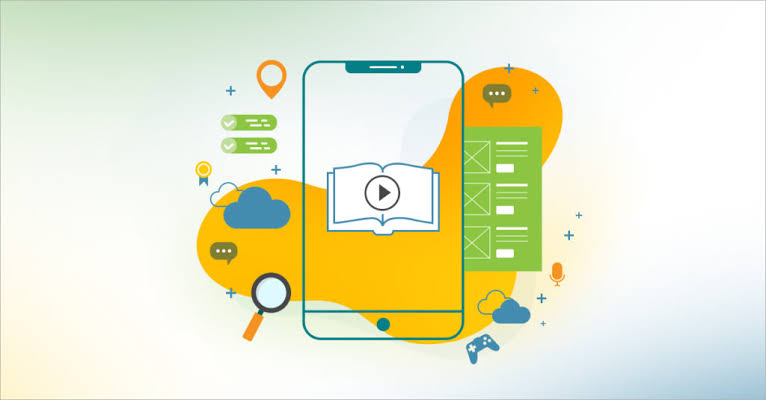
From Classroom to Career: App..
Skill-building apps help stud.. Read More
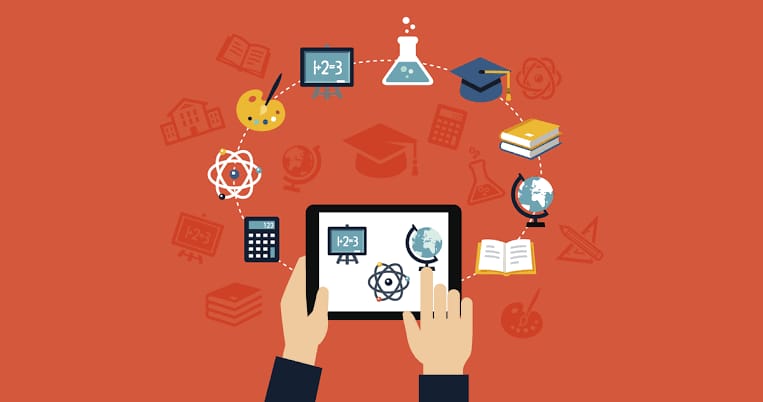
Top Educational Apps That Boos..
Educational apps are transfor.. Read More
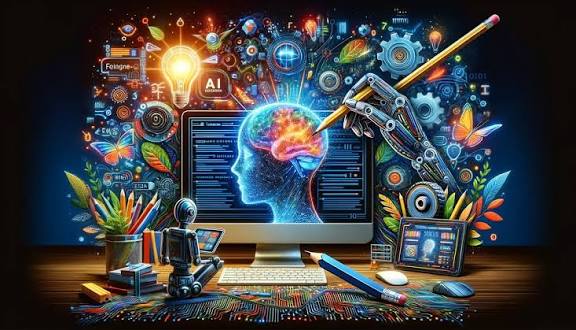
The Future of Social Media Ma..
AI is transforming social med.. Read More
Explore Other Categories
Explore many different categories of articles ranging from Gadgets to Security
Smart Devices, Gear & Innovations
Discover in-depth reviews, hands-on experiences, and expert insights on the newest gadgets—from smartphones to smartwatches, headphones, wearables, and everything in between. Stay ahead with the latest in tech gear
Apps That Power Your World
Explore essential mobile and desktop applications across all platforms. From productivity boosters to creative tools, we cover updates, recommendations, and how-tos to make your digital life easier and more efficient.
Tomorrow's Technology, Today's Insights
Dive into the world of emerging technologies, AI breakthroughs, space tech, robotics, and innovations shaping the future. Stay informed on what's next in the evolution of science and technology.
Protecting You in a Digital Age
Learn how to secure your data, protect your privacy, and understand the latest in online threats. We break down complex cybersecurity topics into practical advice for everyday users and professionals alike.
© 2025 Copyrights by rTechnology. All Rights Reserved.